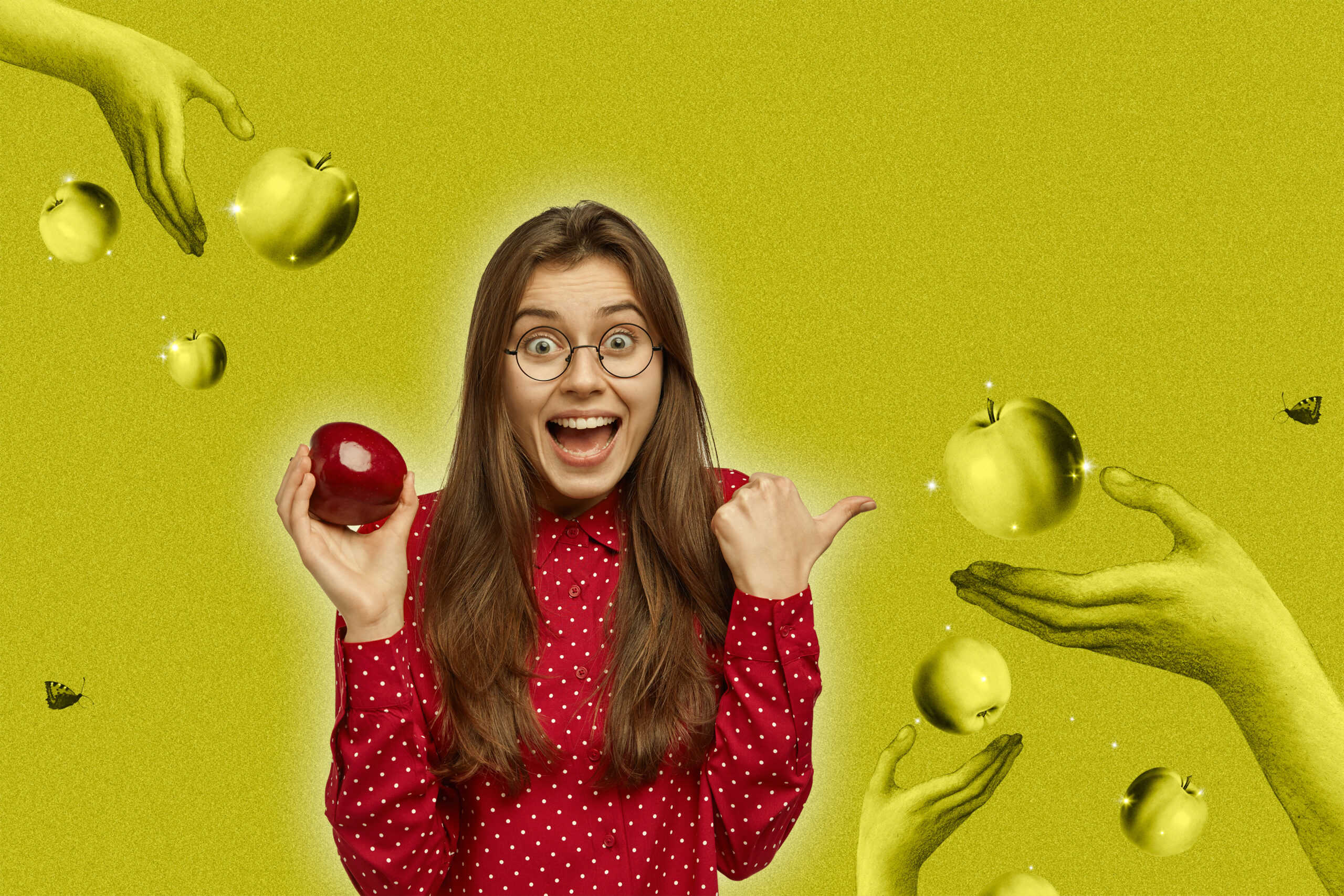Ever noticed how a single feel-good tidbit can flip a gloomy day into a grin? Happy facts act like tiny fireworks in the brain—sparking curiosity, releasing a burst of dopamine, and reminding us that the world is still packed with wonder and kindness.
Whether it’s an animal doing something adorably odd or a scientific discovery that feels like magic, these bright nuggets of knowledge give us permission to pause, smile, and share the joy. So brew your favorite beverage, settle in, and let 100 mood-lifting facts sprinkle a little extra sunshine on your day!
Nature’s Delights
- A sunflower isn’t just one flower—it’s up to 2,000 tiny blossoms working together in perfect spirals.
- Rain actually smells good: the earthy scent called “petrichor” is released by soil bacteria after a shower.
- Some trees “talk” by sending chemical signals through underground fungi to warn neighbors of pests.
- There’s a rainforest frog so small it can sit comfortably on a dime.
- Bamboo can grow more than 35 inches in a single day, making it one of Earth’s speediest plants.
- Monarch butterflies use an internal “solar compass” to navigate thousands of miles during migration.
- Otters hold hands while sleeping so they don’t drift apart.
- In the Alps, snow sometimes turns pink thanks to a harmless watermelon-colored algae nicknamed “glacier ice cream.”
- Lightning fertilizes the ground by breaking nitrogen molecules apart, helping plants grow.
- When you smell fresh-cut grass, it’s the plant’s way of sending out a “help” signal to nearby critters that might eat the pests nibbling on it.
Animal Joys
- Dolphins have individual “names” in the form of unique whistles that other dolphins recognize.
- A group of kittens is called a “kindle,” while a gathering of butterflies is a “kaleidoscope.”
- Seahorses pair up by holding tails, and many species mate for life.
- Parrots will share food with a friend even if there’s nothing in it for them—true bird generosity!
- Cows have best friends and get stressed when separated.
- Rats giggle in ultrasounds when tickled (humans just can’t hear it without special equipment).
- Penguins propose by offering a perfect pebble to a potential partner.
- Elephants soothe upset family members by gently touching them with their trunks.
- Turtles can breathe through their rear ends during winter hibernation—nature’s weird survival trick.
- Honeybees do a “waggle dance” to tell hive mates exactly where the best flowers are.
Science That Feels Like Magic
- Your body replaces about 330 billion cells every day—that’s roughly 4 million new cells per second.
- Laughter boosts your immune system by increasing infection-fighting antibodies.
- There are more possible ways to shuffle a deck of cards than atoms on Earth, proving randomness can feel infinite.
- Astronauts’ hearts become more spherical in zero gravity, but return to normal on Earth.
- The molecules in the water you drink are millions of years older than the dinosaurs.
- Listening to music you love releases dopamine—the same “reward” chemical we get from chocolate.
- Butterflies taste with their feet, ensuring every landing is a flavor test.
- A single strand of DNA stretched out would be about two meters long; your body contains enough to reach Pluto and back—17 times!
- Some metals, like gallium, melt in your hand because they liquefy just above room temperature.
- NASA’s Voyager 1 spacecraft—launched in 1977—still “talks” to Earth daily from interstellar space.
Human Kindness & Quirky Goodness
- Hugging someone you care about for 20 seconds lowers blood pressure and cortisol (stress hormone) levels.
- People who volunteer tend to live longer, happier lives thanks to a “helper’s high.”
- In Iceland, there’s a tradition of giving books on Christmas Eve and spending the night reading together—called “Jólabókaflóð.”
- Scotland’s national animal is the unicorn, symbolizing purity and joy.
- Libraries outnumber McDonald’s restaurants in the United States—because stories matter.
- Some pharmacies in the Netherlands offer “chat benches” where people can sit and have friendly conversations to combat loneliness.
- The world’s quietest place—an anechoic chamber—makes most visitors break into nervous laughter within minutes because silence feels so odd.
- Nearly 100 countries have laws granting the legal “right to a healthy environment.”
- Kind words trigger the brain’s reward centers in both the giver and receiver—generosity is literally contagious.
- The longest study on happiness (Harvard, 80+ years) found strong relationships are the key to a joyful life.
Everyday Pick-Me-Ups
- Smiling—even a fake one—can trick your brain into feeling happier.
- The smell of vanilla is clinically proven to elevate mood and reduce stress.
- Plants in your workspace can boost creativity by 15 percent.
- Drinking water first thing in the morning helps wake your brain faster than coffee.
- Journaling three good things each day can significantly increase overall happiness in six weeks.
- Sunshine triggers your body to produce serotonin, the “feel-good” hormone.
- Watching videos of cute animals for just 30 seconds can lower anxiety levels.
- Listening to nature sounds improves focus and memory by up to 20 percent.
- Sharing a meal with friends at least once a week strengthens immune response.
- A quick 10-minute walk boosts energy more effectively than a sugary snack.
Food & Flavor Fun
- Dark chocolate contains compounds that stimulate the brain in ways similar to falling in love.
- Honey never spoils—archaeologists have tasted 3,000-year-old Egyptian honey and found it delicious.
- Pineapples were once so rare that people rented them as table centerpieces to impress dinner guests.
- Apples float because 25 percent of their volume is air.
- Chewing gum while cutting onions can keep you from crying.
- Strawberries aren’t actually berries, but bananas are.
- Chili peppers evolved their spiciness to keep mammals away—but birds, which spread seeds farther, feel no burn.
- Carrots were originally purple; orange varieties were bred in the 1600s to honor Dutch royalty.
- Each banana “finger” has a built-in natural curve optimized for sunlight capture on the plant.
- Coffee beans aren’t beans—they’re seeds inside a fruit often called a coffee cherry.
Amazing Architecture & Culture
- Japan’s oldest wooden building, the Hōryū-ji temple, has survived for over 1,300 years thanks to flexible joinery that withstands earthquakes.
- There’s a “door to nowhere” in Ireland built purely for aesthetic symmetry.
- A town in Spain hosts “La Tomatina,” a joyful tomato-throwing festival purely for fun.
- Bhutan measures national success in “Gross National Happiness” instead of GDP.
- In Switzerland, you can adopt a cow for the summer and receive cheese made from “your” cow’s milk.
- Finland has public libraries where you can borrow musical instruments, sports gear—even power tools.
- The Eiffel Tower can be 15 cm taller in summer because metal expands with heat.
- Estonia is so digitally advanced you can vote online from anywhere in the world.
- Danish people practice “hygge,” the art of cozy togetherness, to keep spirits high during long winters.
- In many Brazilian towns, townspeople paint neighbors’ houses for free before local festivals—community colors everywhere!
Marvelous Mind & Body
- Your heart beats about 100,000 times a day—roughly 35 million times a year.
- Humans share 60 percent of their DNA with bananas (and 99.9 percent with each other).
- Laughter increases blood flow by 20 percent—great cardio for your arteries.
- Your sense of smell is strongest in spring and summer, boosting enjoyment of flowers and fresh rain.
- The human brain can store an estimated 2.5 petabytes—enough to hold three million hours of TV shows.
- Sneezes travel at around 100 mph—an impressive natural “wind machine.”
- Every minute, your body sheds about 30,000 dead skin cells—glittering evidence of constant renewal.
- Babies have around 100 more bones than adults; many fuse together as they grow.
- When you blush, your stomach lining blushes too (though no one can see it).
- People are taller in the morning than at night because gravity compresses spinal discs during the day.
Planet & Space Wonders
- A day on Venus is longer than a year on Venus—it spins slowly but orbits the Sun quickly.
- In space, metal pieces fuse together when they touch (cold welding).
- Earth’s core is as hot as the surface of the sun—about 5,500 °C.
- Neptune’s winds can reach 1,200 mph, making them the fastest in the solar system.
- One spoonful of neutron star material would weigh about a billion tons on Earth.
- Saturn could theoretically float in water because it’s less dense than H₂O.
- The International Space Station travels so fast you could see 16 sunrises in one Earth day aboard it.
- There are more trees on Earth than stars in the Milky Way—about three trillion vs. 200 billion.
- Mars has the tallest volcano in the solar system, Olympus Mons, at three times the height of Everest.
- A photon takes 40,000 years to travel from the Sun’s core to its surface, but only eight minutes to reach Earth.
Pure Positivity & Quirky Good News
- There’s a global “Thank You” plant-sharing movement called Freecycle that keeps millions of items out of landfills.
- 95 percent of people report feeling happier after giving someone else a compliment.
- Dogs can detect human happiness and often wag their tails more to the right when they see a smiling owner.
- Around the world, 250 babies are born every minute—proof that life keeps blossoming.
- Norway’s prisons focus on rehabilitation so effectively that the country has one of the lowest re-offense rates.
- A Scottish study found that singing in groups releases so many endorphins it synchronizes the singers’ heartbeats.
- LEGO makes about 36,000 bricks every minute—and many sets encourage girls and boys equally to get creative.
- Scientists successfully taught spinach plants to send email alerts when detecting explosive compounds in soil (spinach for cybersecurity!).
- Reading for just six minutes can reduce stress levels by 60 percent—faster than tea or music.
- Somewhere on Earth right now, someone’s first thought in the morning is a memory that makes them smile—maybe even one of these facts!
Share the Sunshine 🌼
Happiness loves company. If a fact made you grin, pass the grin forward—text it to a friend, jot it on a sticky note, or post it online. Better yet, use these tidbits as a reminder to seek (or create) your own daily joys: watch clouds drift, compliment a stranger, plant a flower, or reread a childhood favorite. Tiny sparks of wonder multiply quickly, lighting up communities one smile at a time. Here’s to keeping the happy facts—and happy acts—rolling!

